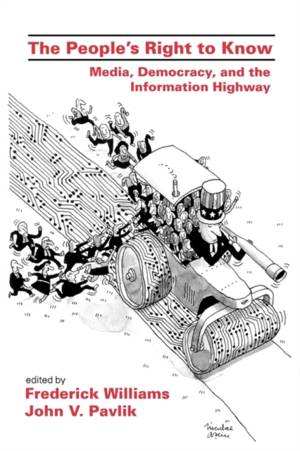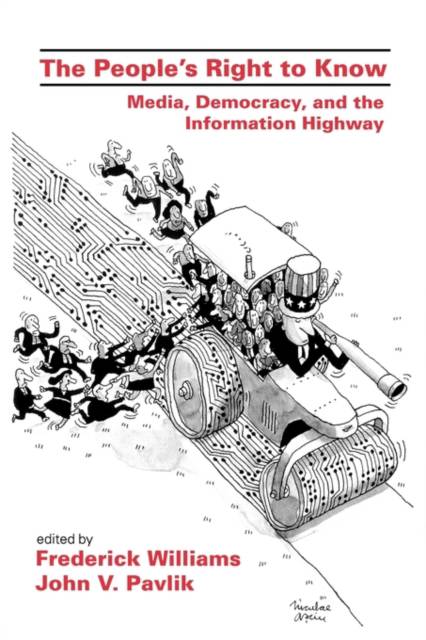
En raison d'une grêve chez bpost, votre commande pourrait être retardée. Vous avez besoin d’un livre rapidement ? Nos magasins vous accueillent à bras ouverts !
- Retrait gratuit dans votre magasin Club
- 7.000.000 titres dans notre catalogue
- Payer en toute sécurité
- Toujours un magasin près de chez vous
En raison de la grêve chez bpost, votre commande pourrait être retardée. Vous avez besoin d’un livre rapidement ? Nos magasins vous accueillent à bras ouverts !
- Retrait gratuit dans votre magasin Club
- 7.000.0000 titres dans notre catalogue
- Payer en toute sécurité
- Toujours un magasin près de chez vous
The People's Right to Know
Media, Democracy, and the Information Highway
79,45 €
+ 158 points
Description
This important volume presents the pros and cons of a national service that will meet the information needs and wants of all people. In the preface, Everette E. Dennis, Executive Director of The Freedom Forum Media Studies Center, asks, "What will a true information highway -- where most citizens enjoy a wide range of information services on demand -- do to local communities, government, and business entities, other units of society and democracy itself?"
It is no longer a question of whether a vastly expanded "information highway" will be built in America. Telephone and cable companies have already inaugurated their plans, and government will most likely incorporate such plans into the economic development policy of the late 1990s. The key questions remaining are: Who will pay for it? and Whom exactly will it serve? The People's Right to Know suggests that serving the everyday citizen should be the main objective of any national initiatives in this area. It counsels that evolving electronic services are new communications media that should be deployed with a main focus on the public's needs, interests, and desires. If advances in the nation's public telephone network will make information services as easy to use as ordinary voice calls, or newspapers promise vast new electronic services awaiting their readers, more attention must also be devoted to the information needs and wants of everyday citizens. In our increasingly multicultural and technology-driven society, enormous inequities exist across America's socioeconomic classes regarding access to information critical to everyday life. If an information highway is to be effective, we need to ensure that all Americans have access to it; its design must start with the everyday citizen. This powerful new medium at our disposal must consider policy that includes attempts to close the information gap among our citizens. It must ensure equal access to data regarding job, education, and health information services; legal information on such topics as immigration; and transactional services that offer assistance on such routine but time-consuming tasks as renewing a driver's license or registering to vote. Media and telecommunications professionals, communication scholars, and policymakers, including two former chairmen of the Federal Communications Commission, provide insights and pointed commentary on the nature and shape of an information highway designed as a new public medium aimed at serving a wide range of public needs. Their work should improve our basis for deciding if there are means by which an enhanced public telecommunications network can benefit the everyday working American.Spécifications
Parties prenantes
- Editeur:
Contenu
- Nombre de pages :
- 272
- Langue:
- Anglais
- Collection :
Caractéristiques
- EAN:
- 9780805814910
- Date de parution :
- 01-11-93
- Format:
- Livre broché
- Format numérique:
- Trade paperback (VS)
- Dimensions :
- 151 mm x 231 mm
- Poids :
- 439 g

Les avis
Nous publions uniquement les avis qui respectent les conditions requises. Consultez nos conditions pour les avis.





